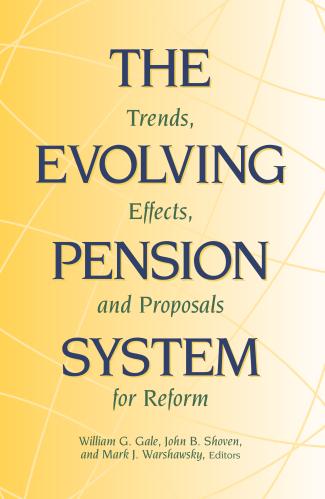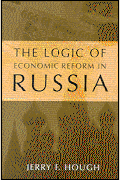Studies in this week’s Hutchins Roundup find that pension reforms in France explain changes in labor force participation for older individuals, attending school with crime-prone peers raises the risk of criminal behavior later in life, and more.
Want to receive the Hutchins Roundup as an email? Sign up here to get it in your inbox every Thursday.
Pension reforms explain rising labor force participation among 60+ in France
The French state pension system has gone through a series of reforms since 1983. Didier Blanchet of INSEE and coauthors argue that these reforms can explain changes in labor force participation of older individuals since the early 1980s. A 1983 reform removed the penalty for retiring before 65, the normal retirement age, for workers with more than 37.5 years of experience, meaning that many workers could receive their full pension at age 60. As a result, labor force participation among 60- to 64-year-olds fell rapidly in the early 1980s. Subsequent reforms since 2003 gradually reintroduced the incentive to work past age 60 by increasing the years of experience required to receive full benefits, increasing the normal retirement age to 67, and increasing pensions for those who choose to work beyond the normal retirement age. Over the last 15 years labor force participation among 60- to 64-year-olds has recovered to the pre-1983 rate.
Exposure to crime-prone classmates increases the risk of future arrest or incarceration
Stephen B. Billings of the University of Colorado and Mark Hoekstra of Texas A&M University show that childhood exposure to peers whose parents committed crimes affects behavior later in life. Using administrative data from Charlotte, N.C., they show that students in schools with high shares of crime-prone peers are significantly more likely to commit crimes in school, be arrested or incarcerated, or drop out of high school in the future. A five-percentage point increase in the share of elementary or middle school classmates whose parents have committed crimes increases the likelihood that students will be arrested between the ages of 19 and 21 by 6.5 percent, and their average time spent incarcerated by 4.5 days. The analysis indicates that childhood exposure to crime-prone peers can significantly affect long-run outcomes for students and that policies aimed at early intervention could have benefits.
Business cycles are more likely to turn a corner as they age
Do business cycles die of old age? Economists have long posited the answer is no, but studying this question is difficult. Travis J. Berge and Damjan Pfajfar of the Federal Reserve Board examine the business cycles of U.S. states and find that the risk of an economic downturn rises as economic expansions lengthen, even after accounting for other risks to growth. They show that a 10-year-long expansion is 35 percent more likely to end than one that is just 3.5 years long. Recessions are also more likely to end when they get longer: A 5-year-long recession is about twice as likely to turn into a recovery than is a 2-year recession. Still, the authors say that the effect of expansion or contraction length on the probability of states moving into a recession or recovery is small relative to the effects of monetary policy, national financial conditions, and regional economic conditions.
Chart of the week: US trade deficit with China has widened on lower exports, not greater imports

Quote of the week:
“In the context of the broad review of our monetary policy framework that we are undertaking this year […] we are examining the policy strategy, tools, and communication practices that the Federal Open Market Committee (FOMC) uses to pursue the Fed’s dual-mandate goals of maximum employment and price stability,” says Richard Clarida, vice chair of the Federal Reserve Board of Governors.
“The review of our current framework will be wide ranging, and we will not prejudge where it will take us, but events of the past decade highlight three broad questions. The first question is, ‘Can the Federal Reserve best meet its statutory objectives with its existing monetary policy strategy, or should it consider strategies that aim to reverse past misses of the inflation objective?’ […] The next question the review will consider is, ‘Are the existing monetary policy tools adequate to achieve and maintain maximum employment and price stability, or should the toolkit be expanded? And, if so, how?’ […] The third question the review will consider is, ‘How can the FOMC’s communication of its policy framework and implementation be improved?’”
The Brookings Institution is committed to quality, independence, and impact.
We are supported by a diverse array of funders. In line with our values and policies, each Brookings publication represents the sole views of its author(s).











Commentary
Hutchins Roundup: France’s pension reforms, crime-prone classmates, and more
April 11, 2019